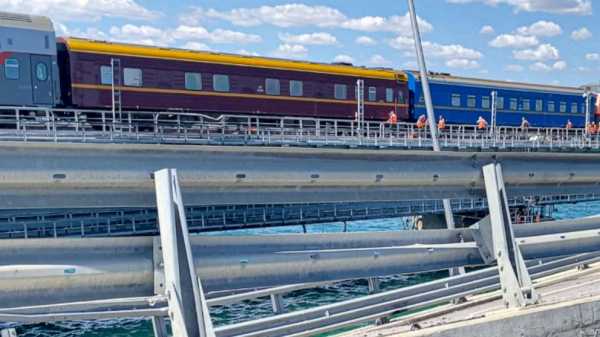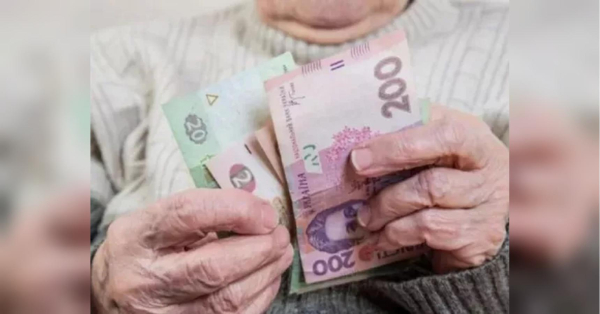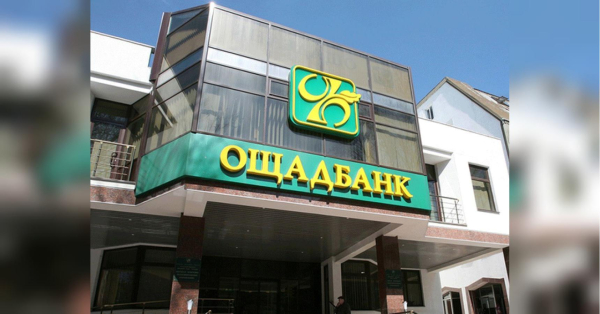
KYIV, Ukraine — Russia unleashed intense drone and missile attacks overnight Wednesday, damaging critical port infrastructure in southern Ukraine, including grain and oil terminals, and wounding at least 12 people, officials said.
The bombardment crippled significant parts of grain export facilities in Odesa and nearby Chornomorsk and destroyed 60,000 tons of grain, according to Ukraine’s Agriculture Ministry.
It came days after President Vladimir Putin pulled Russia out of its participation in the Black Sea Grain Initiative, a wartime deal that enabled Ukraine’s exports to reach many countries facing the threat of hunger.
It also followed a vow by Putin to retaliate against Kyiv for an attack Monday on the crucial Kerch Bridge linking Russia with the Crimean Peninsula, which the Kremlin illegally annexed in 2014.
The Agriculture Ministry, citing experts, estimated it would take a year to restore the damaged facilities. The destroyed grain was supposed to have been loaded onto a vessel and sent through the grain corridor two months ago, the statement said.
“If we cannot export food, the population of the poorest countries will be on the brink of survival!” said Ukrainian Agriculture Minister Mykola Solskyi. “The price of grain will increase, and not all countries will be able to afford buying agricultural products, which means food prices will significantly rise: flour, cereals, meat.”
Wheat prices rose more than 2.5% on Tuesday and over 3% on Wednesday amid the Russian attacks in Odesa, a key hub for exporting grain, illustrating jitters in global markets after Moscow withdrew from the grain deal, threatening to worsen hunger in some parts of the globe. However, Wednesday’s trading price of $6.91 a bushel was still more than 85% below last year’s peak.
Video from warehouses elsewhere in Odesa showed firefighters extinguishing blazes with thick black smoke still billowing from the explosion.
German Foreign Minister Annalena Baerbock tweeted that “Putin hasn’t just blown up the Black Sea Grain Initiative; now he has hit the port city of Odesa with a hail of bombs for the second consecutive night.”
“In doing that, he is robbing the world of any hope of Ukrainian grain. Every one of his bombs also hits the world’s poorest,” she said.
Baerbock pledged support for Ukraine in “turning over every stone to find alternative transport routes,” perhaps by inland waterways, rail and road.
Gov. Oleh Kiper said the attack included Oniks and Kh-22 missiles to hit grain and oil terminals. Debris from those that were shot down struck apartment buildings, seaside resorts and warehouses, sparking fires and injuring several people.
The Ukrainian president’s chief of staff, Andriy Yermak pleaded for more anti-aircraft systems.
Russian emergency officials in Crimea, meanwhile, said more than 2,200 people were evacuated from four villages because of a fire at a military facility.
The blaze forced the closure of an important highway, according to Sergey Aksyonov, the Moscow-appointed head of the peninsula. He didn't specify a cause for the fire at the facility in Kirovsky district.
Across Ukraine, authorities reported that drones and missiles were sent against more regions than in recent days.
“A difficult night of air attacks for all of Ukraine,” said Serhii Popko, head of the Kyiv City Military Administration, in a statement on Telegram.
He said the attacks were especially fierce in Odesa for a second consecutive night. The Ukrainian army’s Operational Command South reported at least 12 civilians were wounded in the region.
The attacks on Odesa injured at least six people, including a 9-year-old boy, showering them with shattered glass and other debris. The remnants of a downed Kh-59 missile created a large crater in another part of the city, wounding three civilians and damaging several buildings.
Eight Iranian-made Shahed drones were also shot down in the wider Odesa region, where two warehouses containing tobacco and fireworks were reported damaged.
Russia also attacked Kyiv with Shahed drones without result, Popko said. Air defenses intercepted all the drones aimed at the capital and a preliminary investigation showed there were no casualties.
President Volodymyr Zelenskyy, meanwhile, welcomed Ireland’s Prime Minister Leo Varadkar to Kyiv, hours after the attacks, and thanked him for his support in the war that Russia launched in February 2022. In a statement published on Telegram, Zelenskyy noted that Ireland's neutrality “does not mean indifference, and this is very important.”
The Russian attack in southern Ukraine was accompanied by strikes elsewhere in the country in the past 24 hours that killed one person and wounded 21 others.
The death occurred in the northeastern Kharkiv region, near the volatile Kupyansk area, while 10 people were injured in the shelling of seven cities in the Donetsk region, including Avdiivka, Mariinka and Chasiv Yar. Two people were wounded by shelling in the Mykolaiv region and one person was injured in the Kherson region.
Russian drone attacks in the Zhytomyr region damaged some infrastructure and private homes, but no casualties were reported, said Gov. Vitalii Bunechko.
Attacks also were reported in the Poltava and Kirovohrad regions.
The attacks were part of what Russia's Defense Ministry described as a “strike of retribution” after Monday's attack on the Kerch Bridge, a key span used for military and civilian supplies. The attack, apparently by maritime drones, damaged part of the roadway on the bridge but rail traffic continued.
Ukraine’s top security agency appeared to tacitly admit to a role in the attack, but stopped short of directly claiming responsibility, echoing their responses after a previous strike on the bridge in October 2022 that took months to repair.
___
Follow AP’s coverage of the war at https://apnews.com/hub/russia-ukraine
Sourse: abcnews.go.com






